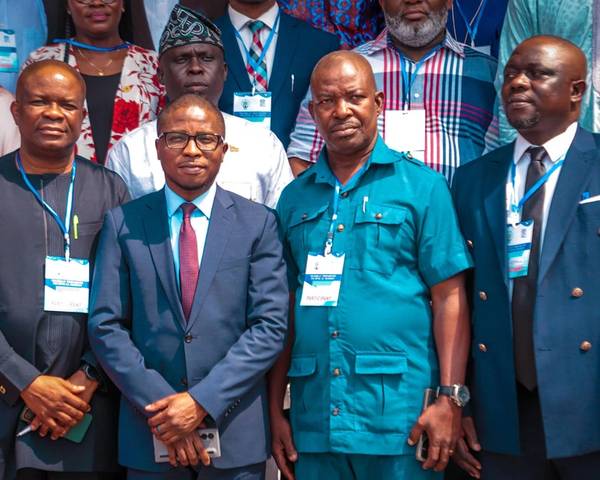
The Nigerian Maritime Administration and Safety Agency (NIMASA) is reviewing 16 proposals for amendments to the Maritime Labour Convention (MLC), 2006, which is often referred to as the “Seafarers' Bill of Rights.”
This much was made public at a three-day Tripartite Technical session, which brought together key stakeholders from government, employers, unions, and international maritime partners to review Nigeria's ongoing commitment to improving maritime labor standards and the welfare of seafarers.
The Agency’s Director General, Dr Dayo Mobereola, whose speech was delivered by the Agency’s Executive Director, Maritime Labour and Cabotage Services of NIMASA, Mr. Jibril Abba, stated that the proposals under consideration aim to align Nigeria's maritime regulatory framework with best international practices, ensuring fairness, inclusivity, and sustainability. He also expressed deep appreciation for the collaboration between the various sectors involved in this process.
“Through this synergy, we can achieve progressive amendments that will enhance seafarers' welfare, create a fair business environment, and elevate Nigeria’s position as a leading maritime nation. This tripartite session is not just about policy amendments; it is about fostering a collective commitment to the sustainability of the maritime sector and the protection of seafarers' rights”, Jibril said.
He underscored the importance of the sessions and stated that the sessions are expected to focus on a wide range of issues, including the impact of new technologies, environmental considerations, and the evolving needs of seafarers, with a shared goal of improving working conditions while fostering industry growth.
While acknowledging the continued dedication, support, and expertise of the International Labour Organisation, the various union representatives, and other stakeholders, he noted that their contributions are seen as critical in shaping a future where the Nigerian maritime industry remains competitive, resilient, and equitable for all. “We look forward to the outcomes of this session and are confident that our collective discussions will further strengthen Nigeria’s commitment to ensuring decent work for all seafarers,” he concluded.
Addressing the participants was the Nigerian ILO Attache (Labour Services), Mr. Essah Aniefiok, who stated that in order to achieve the tasks ahead, there is a need for cooperation among all the stakeholders in the sector.
On his part, the Regional Advisor and ILO expert on MLC 2006, Dr. Amos Kuje, disclosed that Nigeria is a focal point in Africa, which the ILO recognizes. He emphasized the need for Nigeria to maintain the lead, particularly now that the country is vying for the Category C seat at the upcoming International Maritime Organisation (IMO) elections. He is of the opinion that Nigeria has all it takes to win the elections, hence all stakeholders must work together to ensure that the seafarers welfare is guaranteed. “The practice must align with the theory,” Kuje said.
The MLC, 2006, provides a comprehensive international framework to ensure decent working conditions for seafarers while promoting fair competition within the maritime industry. However, as global maritime dynamics evolve, driven by automation, climate change, and economic shifts, the Agency emphasized the importance of adapting this vital legislation to address emerging challenges.
The event was attended by representatives from the Ministry of Marine and Blue Economy, the Maritime Workers Union of Nigeria, the Nigerian Merchant Navy Officers, and the Water Transport Senior Staff Association, among other stakeholders in the industry.



